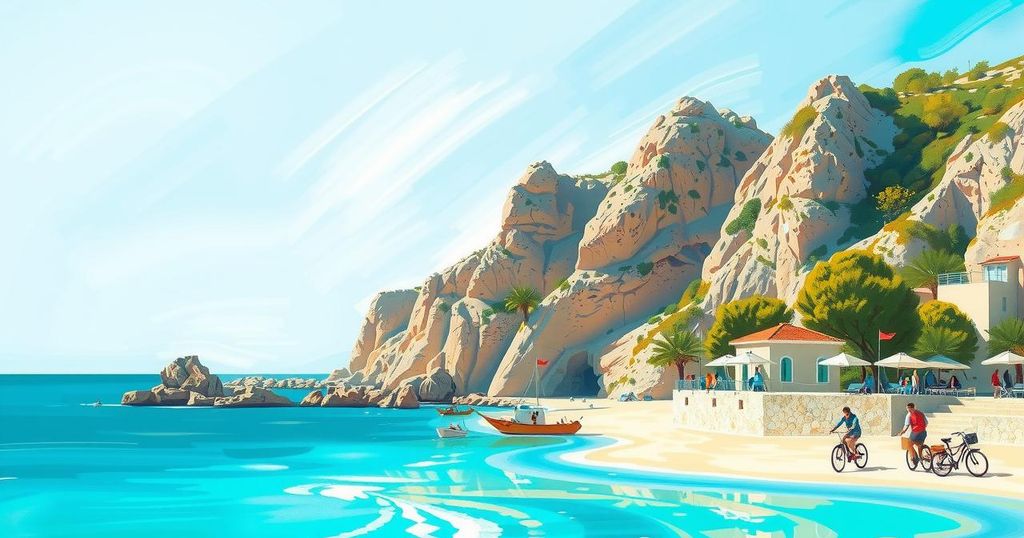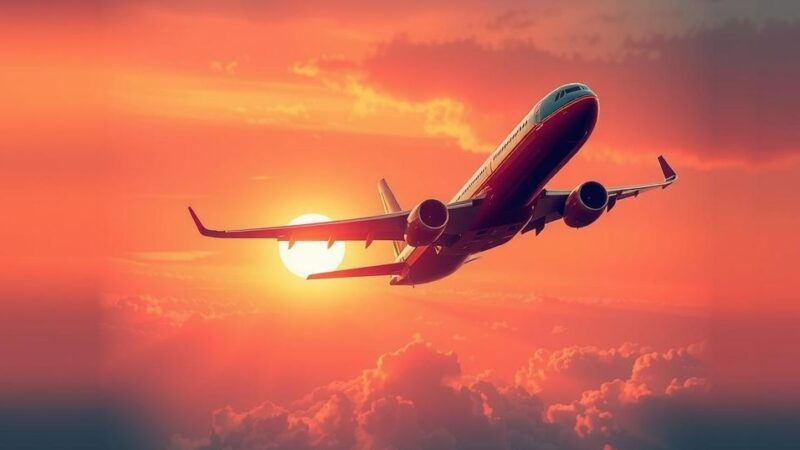The U.S. has banned travel from multiple countries due to security issues, Ibiza is limiting tourist vehicles to tackle overcrowding, and Norway has introduced a new tourism tax. In aviation, an unexpected rerouting occurred for a flight to Naples, while a cruise faced weather disruptions in Sicily, showcasing the travel industry’s current challenges.
In notable global developments, the U.S. has placed a travel ban on several countries including Yemen, Sudan, Iran, and Libya, citing elevated national security concerns. This ban now also includes Somalia, Afghanistan, Haiti, Chad, Congo-Brazzaville, Myanmar, Equatorial Guinea, and Eritrea. The restrictions are particularly significant, aiming to curb immigration and international tourism flows from these regions, though some travelers like diplomats may find exemptions. It’s a proactive move as they assess future security conditions.
Meanwhile, Ibiza, a favorite getaway for many, is tackling the issues of overtourism and traffic congestion. Starting June 1st until September 30th, the island will limit the number of vehicles that nonresidents can bring or rent. The limit set is at 20,168 cars and caravans—16,000 for rental companies and the rest for those traveling from mainland Spain. A €1 daily permit will also be needed for driving on the island, except for bicycles, which are exempt.
The islands’ challenges are significant—the resident population of around 160,000 swells to over 3 million tourists yearly. This steady influx has seen vehicle numbers jump from 51,000 in 2002 to over 200,000 today, demonstrating a strain on local infrastructure. Therefore, these measures aim to ease the summer burden.
Across Europe, Norway has rolled out a new tourist tax aimed at regulating visitor growth and enhancing local infrastructure. This comes as a response to a surge in international arrivals, especially due to the trendy push for unique vacation experiences, dubbed “coolcations.” The law allows municipalities to tax up to three percent on overnight stays, which will vary depending on local demand.
Norway recorded over 38 million overnight bookings last year, a formidable number for a country with just five million inhabitants. This new levy aims to protect Norway’s delicate ecosystems as the government seeks to balance tourist numbers with conservation efforts. Notably, this sets Norway in line with other English cities that have already initiated similar tourism levies, such as Paris and Venice.
In the skies, an unexpected complication arose for a recent transatlantic flight to Naples. A large aircraft size led to mid-air rerouting, forcing it instead to land in Rome, with passengers then traveling by bus to complete their journey. This incident exemplifies the need for careful planning when matching aircraft sizes to airport capabilities, especially as larger jets increasingly populate these routes.
On the water, cruise lines are also facing their share of difficulties. A ship docked in Sicily had to abruptly stop disembarkation due to high winds pushing it from its moorings. During the chaos, one guest fell into the water but was rescued and treated for minor injuries. Winds of 45 mph were recorded, exemplifying the unpredictable weather-related challenges in the cruise industry and the urgency for strict safety protocols.
Ultimately, as the U.S. enacts travel bans and regions like Ibiza and Norway implement regulations to address overtourism and infrastructure, the travel landscape is shifting. With geopolitical tensions and environmental concerns on the rise, travelers need to remain informed about local regulations and conditions—because, as we’ve seen, things can change in a heartbeat in today’s world of travel.
In summary, the evolving travel environment is marked by the U.S. banning travelers from several nations due to security concerns, Ibiza restricting vehicle access for tourists to combat overcrowding, and Norway introducing a tax on tourists to better manage infrastructure demands. Additionally, incidents in the air and at sea highlight the growing challenges the travel industry faces. As destinations grapple with sustainability and security, travelers should stay informed about the regulations that could affect their plans.
Original Source: www.travelandtourworld.com






